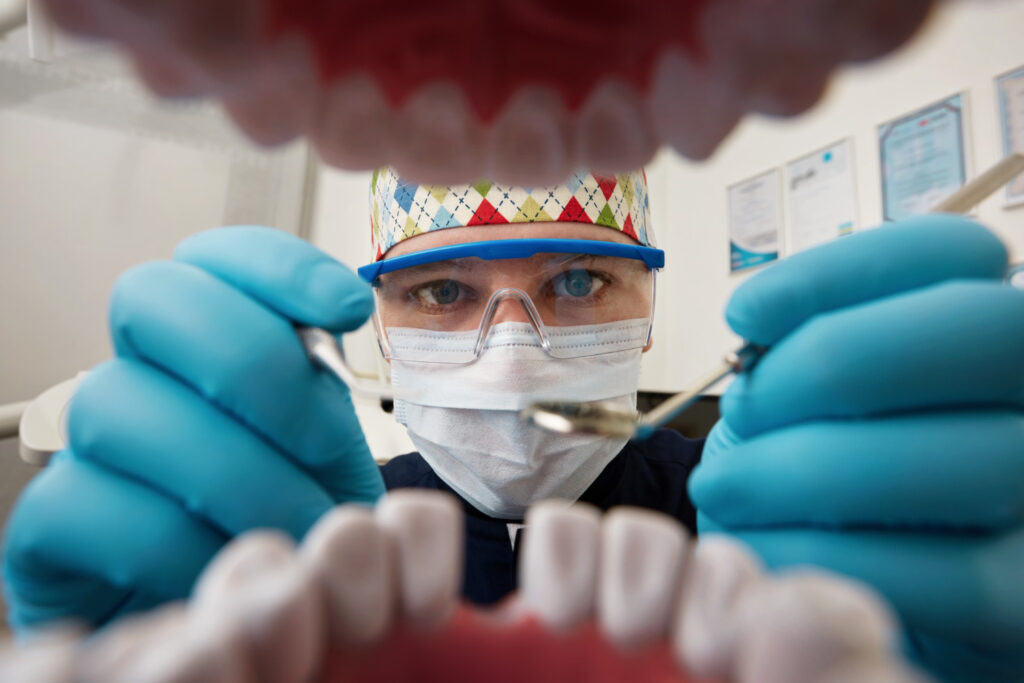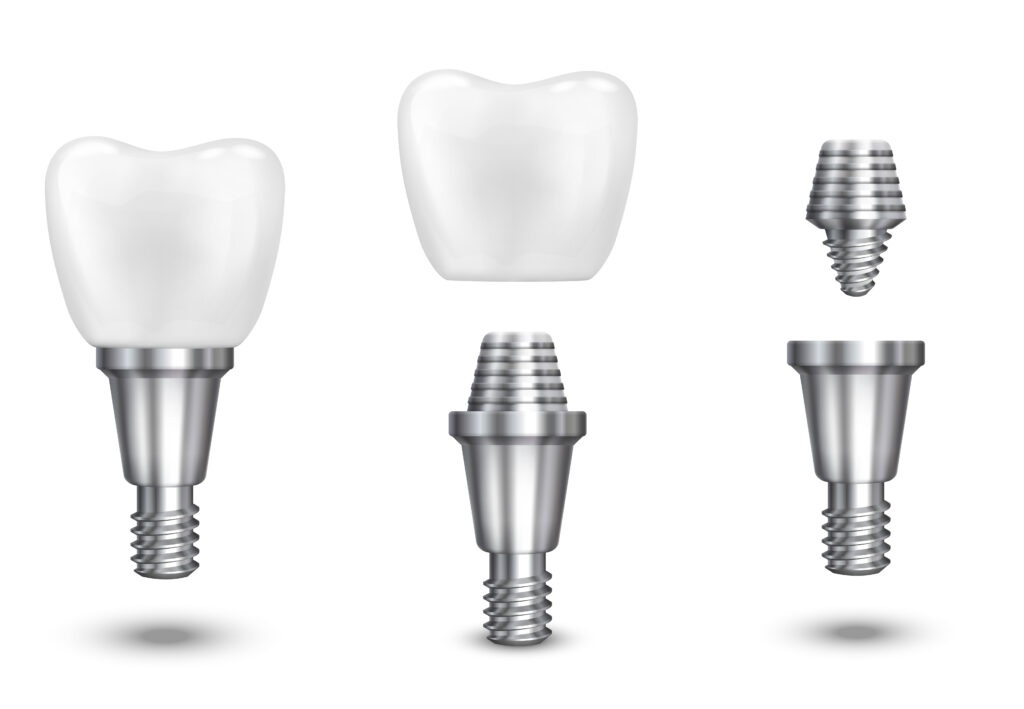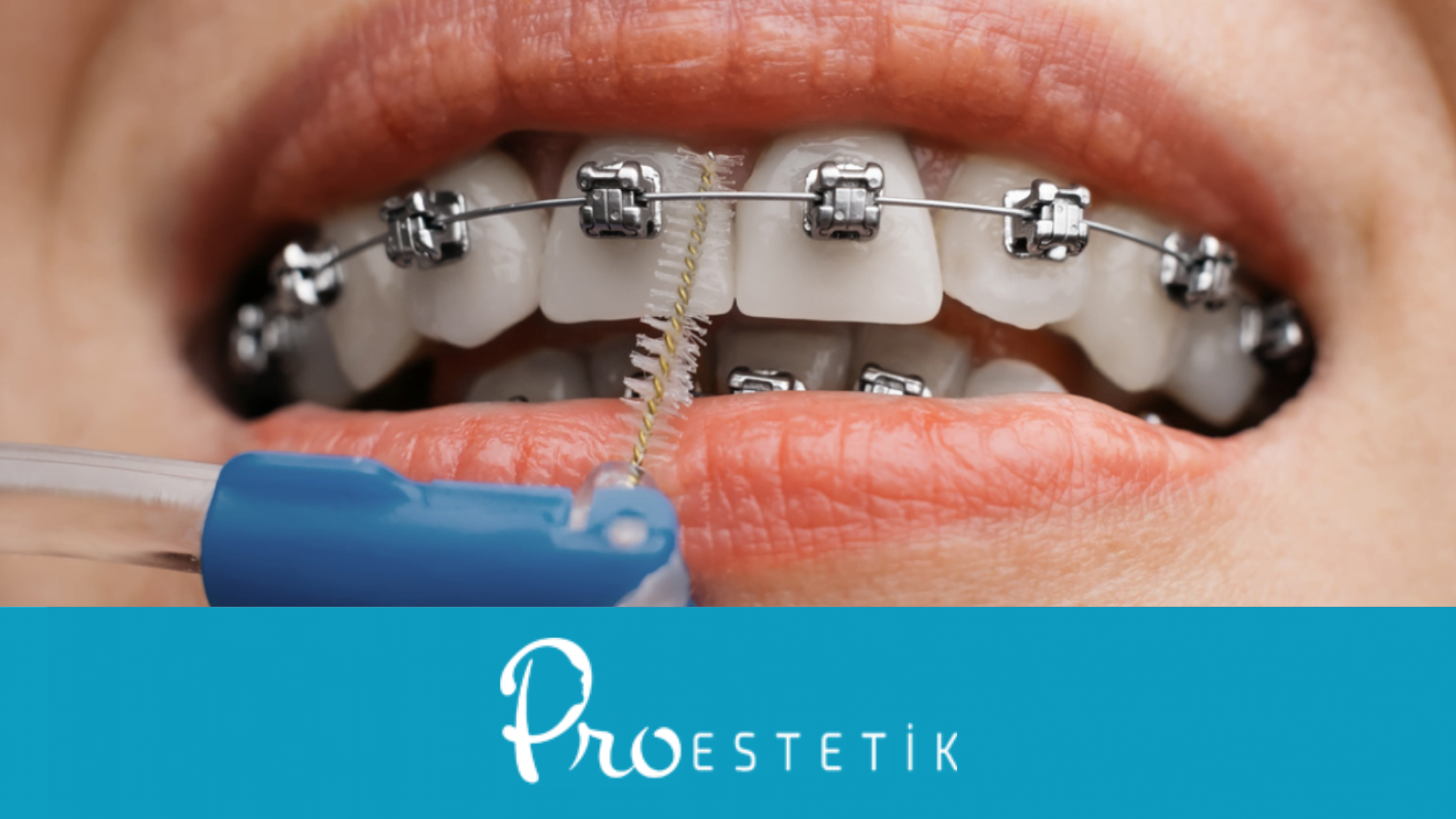Congenital tooth agenesis is also referred to as congenital tooth deficiency. In this condition, one or more teeth fail to develop due to congenital reasons. It can be observed in both primary and permanent teeth.
We have explained what congenital tooth agenesis is in detail. Here are the causes of tooth agenesis and the treatment process…
Congenital Tooth Agenesis

Congenital is a term used for conditions that occur from birth. Congenital conditions can arise due to genetics or the mother’s lifestyle during pregnancy.
Congenital tooth agenesis is a birth-related issue. People with this condition have fewer teeth than a normal individual would typically have. As a result, various oral and dental problems can occur.
This issue, which can affect the overall health of the mouth and teeth, should be treated as soon as possible. If left untreated, the treatment process may become more difficult over time.
We have briefly mentioned what congenital tooth agenesis is. Now, let’s explain the causes of this condition!
What Causes Congenital Tooth Agenesis?
Congenital tooth agenesis is a genetic condition. There are several reasons that can prevent tooth development. Identifying the cause of tooth agenesis is important for the treatment process.
The causes of congenital tooth agenesis are as follows:
- Developmental Issues
- Genetic Problems
- Developmental Delay During Pregnancy
- Certain Diseases and Syndromes
We have listed the most common causes of congenital tooth agenesis. Now, let's discuss these causes in more detail.
Developmental Issues
During development, there can be situations where the tooth roots of babies do not form correctly. These conditions can prevent the teeth from developing or cause no teeth to form at all. This can occur in one or more teeth.
Genetic Problems
One of the most common causes of congenital tooth agenesis is genetic problems. Genetic traits inherited from the family can affect tooth development. This leads to tooth agenesis during the baby's development.
Developmental Delay During Pregnancy
During the embryonic period, tooth buds form and the teeth are placed. At this stage, a structural problem can arise. These problems prevent the baby’s teeth from emerging, causing tooth agenesis.
Certain Diseases and Syndromes
Some syndromes that affect babies can impact their overall development. One of these is Down syndrome. Babies with Down syndrome may experience congenital tooth agenesis.
We have explained in detail what congenital tooth agenesis is and the common causes of it. Now, let’s discuss the problems that can arise as a result of congenital tooth agenesis.
Problems Caused by Tooth Agenesis

At first, congenital tooth agenesis may seem harmless. The absence of one or more teeth in the mouth may not be noticed. However, this condition has many negative effects on oral and dental health.
The problems caused by tooth agenesis are:
• Tooth agenesis can affect the health of other teeth in the mouth, leading to tooth loss.
• It can reduce jaw movements in the mouth, leading to bone loss.
• Missing teeth can cause the remaining teeth to shift over time, creating gaps between them.
• If not treated, missing teeth can lead to gum disease.
• It can cause difficulty when eating.
• It may lead to teeth grinding during sleep.
• Over time, tooth agenesis can lead to jaw misalignment.
• It can affect the aesthetic appearance of the teeth.
• It can affect speech function, leading to speech disorders.
We have answered the question of what congenital tooth agenesis is and discussed the problems it can cause. This condition can lead to serious health issues, especially jaw misalignment and speech problems.
If you do not want to experience such issues, it is very important to make an appointment with your dentist and undergo an examination for your health.
Treatment for Congenital Tooth Agenesis
Congenital tooth agenesis is a condition that occurs from birth. People experiencing this problem may face issues such as jaw misalignment, difficulty eating, and speech function problems.
To prevent these issues caused by tooth agenesis, treatment is necessary. People often wonder what can be done for a missing tooth. There are several treatment options for tooth agenesis.
The types of treatment for congenital tooth agenesis are as follows:
• Tooth Implants
• Surgical Procedures
• Fixed Prosthetics
• Orthodontic Treatment
These treatments vary from person to person. Your dentist will choose the most suitable treatment for you. Let’s take a closer look at the listed treatment options.
Tooth Implants Treatment

Tooth implants are among the first treatments for missing teeth. This method involves placing artificial tooth roots into the jawbone. This helps treat tooth agenesis and results in healthy and aesthetic teeth.
Surgical Procedures
Surgical procedures are another method for addressing missing teeth. Some people may have jawbones that are not suitable for implants. Surgical procedures are used to adjust the jawbone before implant placement.
Fixed Prosthetics
For people with missing teeth, fixed teeth can be placed based on specific measurements. This treatment method helps improve the aesthetic appearance of the teeth and resolves chewing problems.
Orthodontic Treatment
People with congenital tooth agenesis may experience issues with tooth alignment and jaw development. This treatment method helps regulate jaw development and ensures the proper placement of artificial teeth in areas with tooth agenesis.
For more information on orthodontic treatments, check out our other articles!
You may be interested in: "What is Orthodontics? How Are Treatments Applied?"
After Treatment: Things to Consider

There are various treatment options for tooth agenesis, which help resolve dental problems caused by missing teeth. After treatment, there are some things to pay attention to for your oral and dental health.
Things to consider after congenital tooth agenesis treatment are as follows:
• People who receive tooth implants should brush their teeth gently with a soft toothbrush twice a day.
• After dental treatment, consuming hard and solid foods can damage your teeth. It is recommended to consume liquid and soft foods for a while.
• Due to sensitivity after treatment, it is important to avoid consuming very hot or cold products. Beverages and food should be consumed at a lukewarm temperature.
• It is recommended to avoid harmful products like alcohol and cigarettes for your dental health, especially during the recovery process.
The patient's approach is very important for the recovery process and the success of the treatment.
Contact Us!

We have explained in detail what congenital tooth agenesis is. If you have any questions about congenital tooth agenesis or other dental problems, feel free to contact us.
Also, for any problems related to your oral and dental health, you can visit our clinic and benefit from our free initial consultation service.
For detailed information about our services, please visit our page!
CLICK HERE: "OUR SERVICES"

 English
English Turkish
Turkish Deutsch
Deutsch العربية
العربية![[:en]What is Congenital Tooth Agenesis? 4 Treatment Methods![:tr]Konjenital Diş Eksikliği Nedir? 4 Tedavi Yöntemi![:de]Was ist kongenitale Zahnagenesie? 4 Behandlungsmethoden![:ar]ما هي نقص الأسنان الخلقية؟ ٤ طرق للعلاج![:] Konjenital Diş Eksikliği Nedir?](https://proestetik.com.tr/wp-content/uploads/2024/11/konjenital-dis-eksikligi.png)










